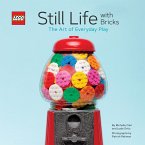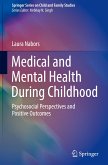It is clear that violence by youth is not to be found only on city streets, in city schools and among city youth but anywhere and everywhere wrathful, disenfranchised young people reside. In this volume, the editors share their insights on the latest research for how families can promote optimal development in children from birth to age six, so they can grow into healthy, happy and competent young adults.
Topics include social-emotional learning; neighborhood and community influences; the role of teachers and other caregivers; and more. The volume includes the actual Bingham Childhood Prosocial Curriculum, so that it can be implemented at any center.
A Blueprint for the Promotion of Pro-Social Behavior in Early Childhood will be a helpful resource for clinical child psychologists, school psychologists, early childhood educators, as well as for upper-level students of these areas.
Hinweis: Dieser Artikel kann nur an eine deutsche Lieferadresse ausgeliefert werden.
Topics include social-emotional learning; neighborhood and community influences; the role of teachers and other caregivers; and more. The volume includes the actual Bingham Childhood Prosocial Curriculum, so that it can be implemented at any center.
A Blueprint for the Promotion of Pro-Social Behavior in Early Childhood will be a helpful resource for clinical child psychologists, school psychologists, early childhood educators, as well as for upper-level students of these areas.
Hinweis: Dieser Artikel kann nur an eine deutsche Lieferadresse ausgeliefert werden.
From the reviews:
"This is a most useful and inspiring volume for early care and education teachers and administrators who are seeking to infuse their centers and schools with a learning culture that brings respect, care, and kindness. It is ... useful as a resource for teacher preparation faculty who might want to bring forward emotional development and positive behavioral supports ... . Parents and educators both will appreciate the ... activities that introduce moments where kindness, emotions, respect, cooperation, and self control can be modeled ... ." (JoAnn L. Robinson, The Journal of Primary Prevention, Vol. 27 (4), July, 2006)
"This is a most useful and inspiring volume for early care and education teachers and administrators who are seeking to infuse their centers and schools with a learning culture that brings respect, care, and kindness. It is ... useful as a resource for teacher preparation faculty who might want to bring forward emotional development and positive behavioral supports ... . Parents and educators both will appreciate the ... activities that introduce moments where kindness, emotions, respect, cooperation, and self control can be modeled ... ." (JoAnn L. Robinson, The Journal of Primary Prevention, Vol. 27 (4), July, 2006)








